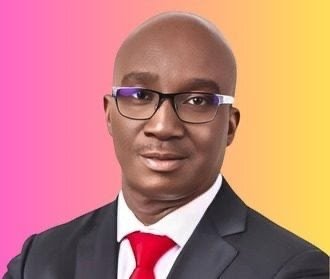The Edo State Government’s much-celebrated $250 million foreign investment deal is already facing a storm of doubt. Signed just three days ago at the 2025 Edo State Global Investment Summit in Glasgow, Scotland, the agreement with the European African Chamber of Commerce and Industries (EuroAfrica CCI) was touted as a game-changer for Edo’s economy. Yet attempts to reach the organization through its listed phone lines and emails have failed, sparking growing fears that the deal may be another hollow promise.
Governor Monday Okpebholo’s administration had hailed the pact as Edo’s boldest step toward economic revival since his inauguration in November 2024. According to his Chief Press Secretary, Fred Itua, the investment will be funneled through the Edo State Diaspora Agency into agriculture, mining, renewable energy, and skills training over the next five years. The governor promised transparency, accountability, and incentives to ensure the money creates jobs and boosts industrial growth.
EuroAfrica CCI’s Director-General, Ambassador Dr. Kingsley Obasohan, was the face of the deal in Glasgow, claiming the chamber represented networks across 98 countries and had already invested $149 million in economic programs across Africa. He pledged that the funds would directly benefit Edo people by expanding value chains in agriculture, food processing, water, energy, and recycling.
Read also:
- Civil society group faults Ossiomo Power Plant claims over Edo debts
- Freedom at Last: Nigerians can now swipe their Naira Debit Cards abroad without restrictions
- Special Security Squad demolishes 4 houses in Edo North, arrests over 20 suspects
But optimism is dimming fast. Calls to EuroAfrica CCI’s listed numbers (+234-706-272-2244) in their official website, do not really belong to them, while emails bounce back as undeliverable. Online business directories and chamber listings provide little beyond glossy descriptions, with no independent confirmation of the group’s footprint. Even on social media, the deal has generated no buzz beyond government press releases, fueling suspicions that the chamber may not have the muscle to deliver.
Local critics have seized on the silence. Civil society activist Comrade Osas Ehigie of the Edo Transparency Network described the deal as troubling. “If their lines are dead before the ink dries, what happens when the money’s supposed to flow? This looks like another summit photo-op,” he said. Within Benin City, street conversations are peppered with the word “brickles,” a slang term for flashy schemes that collapse under pressure.
Edo has a long history of failed partnerships. Successive governments have courted foreign investors with grand pledges that never materialized, leaving citizens disillusioned and unemployment rates stubbornly high. Governor Okpebholo insists this deal is different, arguing that diaspora involvement will secure accountability and bypass Nigeria’s usual investment pitfalls. Yet the absence of verifiable details on EuroAfrica CCI’s financial capacity and the blackout of its communication lines leave the $250 million pledge hanging in uncertainty.
For now, Edo waits. Will this Glasgow handshake deliver a true economic breakthrough, or will it become another entry in Nigeria’s long list of broken investment promises? Until EuroAfrica CCI surfaces with proof of capacity, skepticism will remain louder than celebration.






